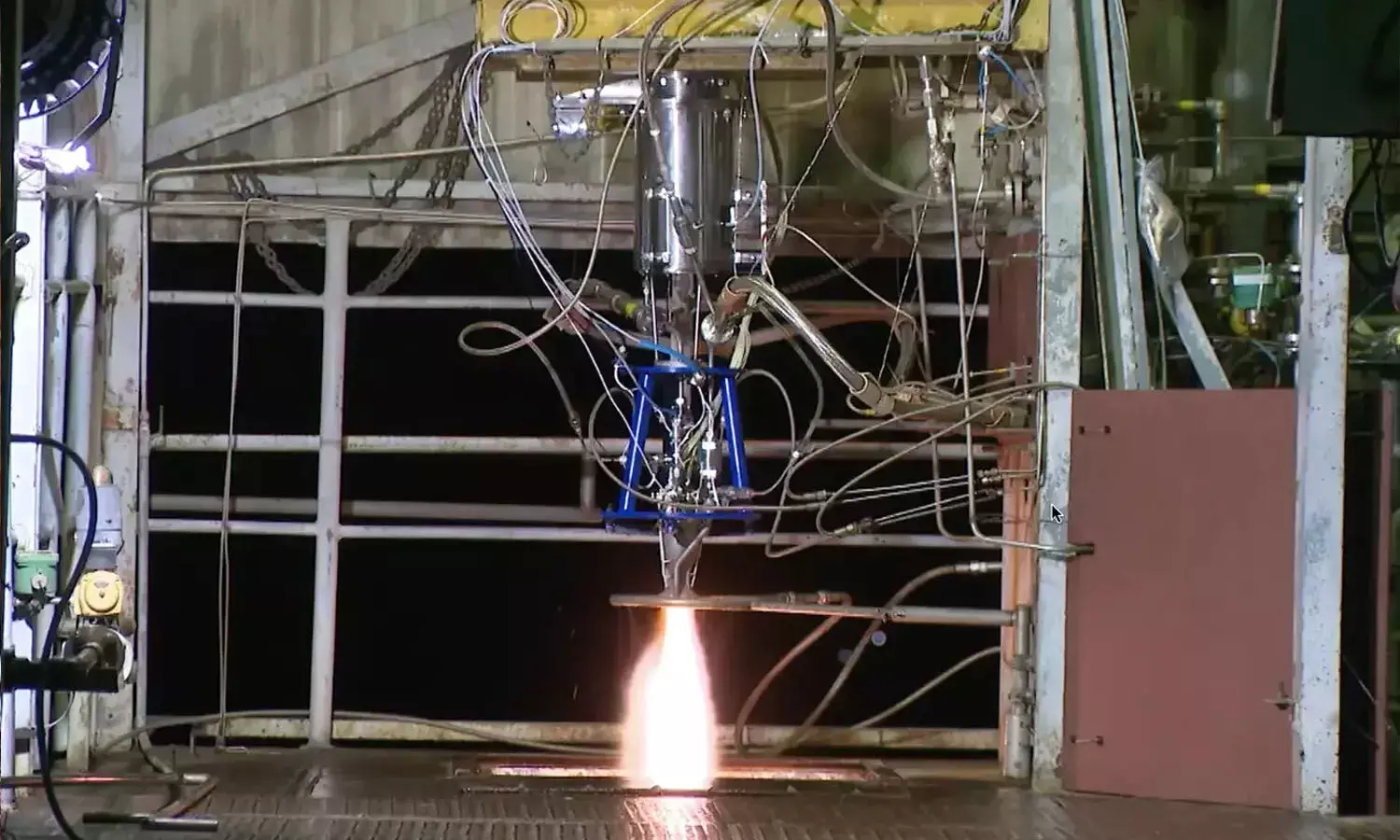ISRO supports Hyderabad start-up Skyroot’s rocket engine test
ISRO demonstrated its commitment to fostering the space ecosystem in India by enabling a successful rocket-engine test conducted by Skyroot, a Hyderabad-based space start-up

HYDERABAD: The Indian Space Research Organisation (ISRO) demonstrated its commitment to fostering the space ecosystem in India by enabling a successful rocket-engine test conducted by Skyroot, a Hyderabad-based space start-up, at ISRO Propulsion Complex (IPRC) Mahendragiri.
The test took place in the Liquid Thruster Test Facility (LTTF) in IPRC. The testing was enabled by the Ahmedabad-headquartered Indian National Space Promotion and Authorisation Centre (IN-SPACe).
The test involved the Raman-II engine, which was designed by Skyroot to generate 820 N (Sea Level) and 1460 N (Vacuum) thrust, with a nominal chamber pressure of 8.5 bar absolute. The regeneratively cooled engine, manufactured through additive manufacturing techniques, utilised Mono Methyl Hydrazine and Nitrogen Tetroxide as propellants.
The 10-second duration test achieved the expected performance in terms of start transient, steady state, and shut-off. Skyroot's aim was to integrate the Raman-II engine into the fourth stage of its launch vehicle, Vikram-I, designed to put satellites into orbit.
The test facility systems demonstrated normal performance during the test, meeting the engine inlet conditions at T0. The instrumentation systems also performed as expected, further ensuring the accuracy and reliability of the test results.
This facilitation underscored ISRO's commitment to nurturing private players, start-ups, and Non-Government Entities (NGEs) in developing the country's space ecosystem. Going forward, a series of additional tests were also planned to further validate and refine the Raman-II engine's capabilities.



